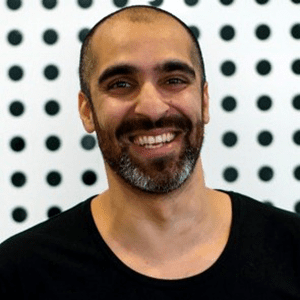

Coaching and effective leadership
What type of leader are you? A Directive, a Participative, an Affiliative Leader, or a blend of all 3 – An Effective Leader? Lynn Leahy, award-winning international speaker and business coach, leads the listener through the importance of coaching skills in leadership.
What’s the purpose of coaching? What makes a good coach? Can you coach someone remotely? Lynn tackles these questions and more. A great listen for all walks of life.
Stephanie: Hello, and welcome to TEC Live. Stephanie Christopher here, Chief Executive of the Executive Connection. TEC connects CEOs, executives, and business owners to the world’s largest business leader network.
My very special guest today is Lynn Leahy, an award-winning international speaker and business coach. Lynn is an experienced company director who has been inspiring and developing people and teams around the world for more than 25 years. She’s worked with teams and individuals at all levels, across four continents in more than 20 countries.
Lynn’s also a trained counsellor and an accredited mediator who draws on a range of psychotherapeutic approaches in her work. She has an exceptional track record of helping companies effectively face change. One such program was leading a major managing change program for Unilever delivering a program for over 1600 delegates across 19 countries. Lynn, welcome to TEC Live.
Lynn: Nice to be here.
Stephanie: So, I was thinking about talking to you today. I haven’t seen you for a while, actually.
Lynn: Yeah.
Stephanie: And I was thinking, whenever I hear you speak, I feel like I’m watching the Mike Wall Show and Pam Ayers is on, that wonderful poet who must be from the same part of-
Lynn: Yes, we’re in the North of England.
Stephanie: From the North.
Lynn: Sometimes my accent is a bit hard for people. A bit jarring.
Stephanie: No, no. It’s very soft. It’s really quite Pam Ayers.
Lynn: We say bus, rather than the bus.
Stephanie: You say bus, do you?
Lynn: Yeah.
Stephanie: And you pronounce your Gs at the end as well.
Lynn: Yeah.
Stephanie: So which part of England are you from?
Lynn: I actually live now on the borders of Cheshire and Derbyshire, in a place I fell in love with when I was eight years old. I said I was going to live there when I grew up, and I do.
Stephanie: Is that right?
Lynn: It’s a tiny village called Porch Wrigley. And it’s so small it hasn’t got a shop or a pub.
Stephanie: Right.
Lynn: It’s very different to be in the city.
Stephanie: So what’s the point?
Lynn: We’ve got loads of woodland and we love walking. So we walk a lot.
Stephanie: That’s good. And you’ve just been in Southeast Asia?
Lynn: Yeah. Thailand and Cambodia. Been on the board of a charity for seven years, and then I was just doing some workshops to support them. It was great.
Stephanie: How was that? It was good?
Lynn: It was wonderful. And it’s a charity to support women to have an education because they don’t necessarily get an education. And I just had such a fantastic life as a woman because I’ve had an education. So, just wanted to be involved and met some very special people, did quite a lot of remote coaching with people in Cambodia and Thailand. So, I got to meet people I’ve been only speaking to virtually and that was special. One day I was waiting there in me posh frock, and they came from a motorbike. Somebody saw me Bridget Jones’s knickers as I got on and off, but we had fun.
Stephanie: And you’re in a posh frock even as we look at you right now. I wanted to talk to you about coaching because I know that you are an absolute master coach. I’ve been in a number of sessions. In fact, I was in a coaching training session when I first started in my current role. So, one thing that you just commented on, can you coach someone remotely?
Lynn: I used to be slightly unsure about it to be honest. When we first had access to Skype, I was thinking, ‘I’m not sure you can.’ But it just depends what you talk about. And yes, absolutely. It’s just in your head that you can’t right. It doesn’t change anything, as long as you have good connection. So you haven’t got the lag. It’s just like being in the room with them. Only thing you can’t do is give them a hug if they need it, which I know many coaches say is beyond boundaries, but I’d always not paid attention to all of that.
Stephanie: So what makes a good coach, Lynn?
Lynn: It’s the qualities that people feel when they’re with you, which are much more important than any skills. I mean, the good news is you can actually make quite a lot of technical cockups with skills and still do dead well, as long as people feel you’re being sincere. You’re not pulling your professional hat. You’ve got to demonstrate. The only skills you need, which come out as a quality, is you enter their world. You don’t have to agree with the whole way they see life, but you can get how that’s how they’re seeing it. And you need to have some skills to demonstrate the empathy.
But I think the big one is you’ve got to feel safe, the psychological safety. And I call it acceptance. Some people prefer the word respect, but I prefer acceptance. And it just means the person feels you’re able and willing to suspend judgment about people who’ve been raised to live their lives differently to you.
Stephanie: So, tell me what that looks like in practice, acceptance.
Lynn: I mean, in an extreme, I do a lot of work, for example, in construction companies. I seem to have gotten a bit of a groove and we have a ball, but they’re not, in the UK, historically into the soft skills arena. So, they’re able to look back and they’ve asked somebody for their options. Somebody gives an option and very clear nonacceptance is they say, ‘Well, that’s bloody stupid.’ And so, that’s really kind of out there and people are now emotionally on the side of a brick wall. But most of us are showing nonacceptance subtly, and we’re never as subtle as we think we’re being, myself included.
Stephanie: Okay, tell me about that.
Lynn: You ask somebody for an option and they give an option. And again, it’s not the option you choose and you go, ‘Really?’ And it’s just like this little inquiry or your left eyebrow goes wizz. Or there’s a bit of you’re sort of saying that’s a bit of a silly comment.
My biggest personal challenge is, I was raised to have a preference to do things really quickly. So, I brought from my past something that I just, for simplicity, call a hurry up driver. My problem was I was going, ‘Any other options? Okay. Any other options.’
Lynn: And the impression you’re giving is you’re too slow. You just can’t cope at my pace. And if anybody feels not accepted by you, the bad news for you is they never speak to you in any depth. So you can’t be a great problem solver because you’re trying to solve problems with missing information.
Stephanie: How have you managed to curb your hurry up driver?
Lynn: A mixture of things. Mostly I really wanted to because I believed in it. That could also be triggered by my other belief, which isn’t always my great thing, but part of me wants to be perfect and I want it to be more perfect than I want it to be fast. So that kind of helped a bit.
But I think I’ve naturally slowed down, but also just being on the end of it, you learn a lot from being coached yourself. And as a therapist, you have to have therapy. And when I’ve been with somebody, who’s pushing me too quickly, and my thoughts haven’t been able to catch up, you start to feel with your heart what you’re doing to other people, perhaps not quite as extremely but nevertheless, you’re doing it. And that’s when you get it with your head and you start to change.
Stephanie: Okay. So, that’s one of the kind of subtle, that hurry up driver might’ve demonstrated a subconscious nonacceptance.
Lynn: Yes.
Stephanie: What are the other non-deliberate things? Subconscious, that’s a better word. Subconscious things that you might be doing as a coach that you need to look out for?
Lynn: Well, I think actually understanding the beliefs you brought from your past is really critical. I don’t like doing short coaching journeys, to be honest, with people because you have to do some personal awareness. And the reason is, if you don’t understand some of the beliefs you’ve brought from the past, like I know these labels make it sound too simplistic, but for simplicity, there’s this need in me to do things excellently, or for some people, they have to please other people, or they have to not ask for help or show emotion.
Stephanie: Or they can’t make a mistake.
Lynn: Yeah. All of those things, if you don’t understand that, that’ll affect what you’re doing when you’re coaching, because you’ll be trying to influence the other person, unconsciously, to choose an outcome that also matches how you think people should lead their lives.
And they are thinking, ‘Well, this outcome would be good enough.’ And you’re thinking, ‘No, there’s a better one. You haven’t got it quite perfect.’ And you waste the time and you stress them. So, you actually have to do quite a lot of self-awareness to become a really good coach, to understand how your view of the world’s getting in the way.
Stephanie: How important is it to understand what the coachee’s view of the world is? What their stuff that they’re bringing to their situation is?
Lynn: Well, obviously, you have to understand it to help them solve problems. If you’ve got the qualities, you don’t have to get all the detail. So, I think the most important skill, if we actually moved to skills, is paraphrasing. And in my experience, some coaches don’t do as well as they could because they spend far too much time trying to think about the next insightful question they can ask this person to help them see the light. And they’ve not yet really got coaching because you as a coach don’t know what the light is.
And so, if you’re unconsciously trying to guide them to the light, you’re already way off track. Whereas, if you actually paraphrase almost every time they speak the detail of what I call, what they’re communicating, not just what they say, you often don’t have to ask another question. Because if they feel like you’ve entered their world meaning they get excited, they just tell you a bit more and you start to get all the information on the table that you need. So, I personally don’t think you can coach without paraphrasing profoundly and often and in detail. You could do something useful. I just don’t think it’d be coaching.
Stephanie: Paraphrasing. It’s certainly not robotically just saying back to them what they’ve said to you.
Lynn: No.
Stephanie: And you just said something about paraphrasing their whole communication. So, tell me how that would work.
Lynn: Well, sometimes, there’s some cultural issues here, but most people’s, for example, in my own culture, we don’t put our emotions into words. The French are more likely, for example, to put their emotions into words. So, I wouldn’t tell you that I’m worried, but the way I’m talking to you, it would be coming through me tone of voice and body language.
Stephanie: And your face right now.
Lynn: Yes. Absolutely. Or I wouldn’t tell you that I’m seething, but the way I’m telling you, you’ll pick it up. And so, when you paraphrase, you’re not repeating what somebody said like a parrot. You can use a few words they’ve used, but you must use some others to show that you’ve processed it and taken their meaning. But you’re also communicating back their emotions, which were not put into words.
Stephanie: So, if you had me in front of you, and you could see that I was seething. I’d probably say I’m seething. I’d probably swear at you first. But if you could see that I was seething, you could hear from my voice, so maybe what I’ve said, how would you then play back there to me?
Lynn: I would play it back as an inquiry, as an question. So, I’ve been sort of saying, ‘You know, the impression I’ve got is that’s really ticked you off.’ Or I’d try to get the level of emotion right, but I’m still asking you to have a got it right. And I think one of the big other problems that people who are new to coaching is they sometimes are shooting themselves in the foot because they believe they’re an astute reader of body language. To be a great coach, you have to believe you’re not an astute reader of body language and you therefore phrase everything as though you could be wrong.
So it’s like, ‘I’m picking this up. Is this what’s happening?’ Now, if I’m right and you feel safe enough to acknowledge your own emotions, you’ll think I’m really clever. And you’ll go, ‘Yeah, it’s absolutely like that.’ Sometimes I’m right, and you’re not ready yourself to face the emotion, and me trying to force you to face it is just going to break the connection between us. So, sometimes I just got to let it go anyway.
But the biggest problem is sometimes you’re just wrong, and I’ve had some wonderful examples of how wrong I can be reading emotion. And as long as you then just say, I’ll say, ‘Is this how you’re feeling?’ And they go, ‘No, this. This is how I’m feeling.’ They often then put it into words. And as long as you say, ‘I’m sorry, I got that wrong,’ most people will forgive you. They just hate you thinking, you think you know them better than themselves.
Stephanie: It’s kind of irritating when someone’s getting you wrong, isn’t it?
Lynn: Yeah. Yes it is.
Stephanie: And that’s going to get in the way.
Lynn: And then we’ve disengaged from them.
Stephanie: A kind of introductory question at this point, what’s the purpose of coaching?
Lynn: Coaching is helping people create some time to stop running on the hamster wheel and do one of two things, if I keep it very simple. One is just think about issues that they’ve got to make decisions on and clear the time and space and create a process that means they can just look at all their options before they make a decision, and be sure they’re choosing an option that’s taking into account as much information as is available, and it will fit their style and personality.
So, you don’t give advice. That’s the big thing. Some people think they’re coaching, they’re just giving advice. Advice isn’t wrong. It’s just not coaching. Or sometimes you’re taking them around Kolb’s learning cycle, which is just a really simple model for continuous improvement. So, I had a mentor for many years and I’d sometimes go along and I’d think, ‘I’ve got nothing that’s worrying me. There’s nothing to talk through.’ And sometimes I was wrong wouldn’t stop operating for the hour and a half because it was all kind of pushed back.
Stephanie: It’s There.
Lynn: Yeah. But sometimes I was right. There wasn’t anything pressing. And then she’d always take her own Kolb’s learning cycle. When we were building trust initially, she’d helped me do it on something positive because you have to have deep trust to be very vulnerable with somebody. So, she’d say, ‘Tell me about something that’s gone really well since I last saw you, Lynn.’
It’s quite nice sharing something that’s gone well. But she’s not doing it just so I can kind of go, ‘Oh, wasn’t that wonderful.’ She uses a process to help me identify what I had control over, that if I repeat, seems to have contributed to that going particularly well. And often people, they don’t know what their natural strengths are, and if they don’t know what their natural strengths are, they forget to do it, particularly when they get under pressure. And so that helped me put to the forefront of my mind-
Stephanie: Reinforces it.
Lynn: Yeah. You think, ‘Don’t forget to do that, Lynn. Yeah, you really have got to make sure that you set the ground.’ But then once we had a lot of trust, she’d say, ‘Tell me about something that’s not gone so well since I saw you, Lynn.’ And you think, ‘Oh, do I want to stretch this out this once through memory?’
But because I feel safe with her, I say, ‘I was really disappointed. This didn’t go as well as I hoped.’ And she helps me do two things. One is she helps me work out whether I had control over not or something, and really challenges you on that because it’s easy to say things like, ‘Oh, well it was the room. I had no control over the room.’ And she’s saying, ‘Are you sure? What could you have done that might’ve meant they really understood why you needed that space?’ And you start thinking, ‘Oh yeah, maybe.’
Stephanie: Maybe it was me after all.
Lynn: Yeah.
Stephanie: Hard to believe that it might’ve been me.
Lynn: Yeah. But equally, because I have a tendency to feel anxious if I’ve made mistakes because of this be perfect driver, she also helped me get myself in balance because if somebody with that be perfect drivers made a mistake, just keep thinking about that. And sometimes she’ll just say, ‘What did you do right today?’ I’ll think, ‘Well, obviously I should have done a lot right, but I want to worry about the bit I’ve got wrong.’ Which isn’t helping my own psyche. I think that coaching is about helping people continue to improve and problem solve in ways that fit their personality.
Stephanie: So is that Kolb’s learning cycle?
Lynn: Yeah.
Stephanie: Just give us a quick definition of what that is.
Lynn: So basically, if we take any action, the only way we’re going to improve is if we then create some time to reflect back on what we did. And if you’ve got some feedback coming in from people who are part of it, that obviously helps, but self-reflection can still be good enough. And the point of that reflection is to work out what you had control over that went really well. So, to carry on doing it and what you had control over that didn’t go so well. That allows you then to theorize, which is where the coaching really comes in to brainstorm all the options.
If that didn’t go well, what are all the options you’ve got instead of that? And that’s where you look at all the pros and cons of each option, and then grow model from coaching, pushing to say, ‘Okay, so which of these options will you take? What will you do? Checking out, you seem to have the will to do it, whether you’ve kind of got the energy.’ And that helps you create to pragmatise create a pragmatic plan, which means that the next time you, I call it go back into the cycle, you consciously know that I’m going to carry on doing it in this way. Instead of that, I’m going to try that. And if you keep going around the cycle, you get better and better.
Stephanie: You get better and better. I really liked that. What did you have control over that you did well?
Lynn: Yeah.
Stephanie: What a great place to start.
Lynn: Yeah, it’s really nice.
Stephanie: Some people would find that hard, though, wouldn’t they? If someone’s really low, they might find it hard to say, ‘I did this well.’
Lynn: Well, I think that’s one of the key things that, if I wanted to give another message about coaching, it would be, I think your primary task, when you’re a coach, is to help people recognise the strengths and some people don’t do that enough. They want to get straight to what you could get better at, and that doesn’t help anybody’s psyche.
And once you help somebody see the strengths, you’ve then earned the right to maybe help them think about the things they need to do better. I’ll change the name, but I was working with a young woman in Malaysia, and I thought she was an astonishing young woman. At one point I said, ‘As part of our coaching work, what are your strengths?’ And she said, ‘I don’t know.’
And I said, ‘Well, can you guess?’ And she spent ages trying to find these strengths. And then she finally looks like distressed. And she said, ‘I’m not being difficult, Lynn, but nobody’s ever told me I’ve got any strengths. I have no idea what my strengths are.’ She was Chinese and Malaysian, so these are cultural norms.
And so, part of your job as a coach is just to speak the truth of what you see, not what anybody else has told you. You meet, talk. It’s called immediacy. So, I just said, ‘Okay, it sounds like you, perhaps, don’t know your strengths. I understand that. So I’ll just tell you what my opinion is. And of course it is only my opinion, but I’ve seen you in many situations over the last four months.’
So I started to list all the strengths and she started to cry. She couldn’t stop crying. And she told me later that she was within about a week of handing in a notice. She thought she couldn’t do it. And then when she reflected on what I’d said, the way I told her, she believed me and it had helped to realise she could do a job.
And not only is that fabulous, but just to see how many fabulous people get lost. Whereas she sent me an email last Christmas, and I encourage people to be a big head with me. I say, ‘Pardon me if I give you a big head.’ And she said, ‘You’re one of the few people in the world with whom I can be a big head, Lynn.’
So I thought I would tell you that she’d just done the highest level of exams in her area of her industry. And she said, ‘Lynn, they’ve told me I didn’t just get the highest score anybody in Malaysia’s ever got, apparently I’ve got the highest score ever in the world.’ And this woman could have given the job up because she didn’t know what she was doing.
So, the hardest skill of coaching is challenge, and your primary task is to challenge them to recognise their strengths. But sometimes you do have to challenge them to realise that some of the behaviours might not be serving them well. But you first see if they can challenge themselves because it doesn’t hurt us as much to voice the negative about ourselves as have somebody smack us in the face with it?
Stephanie: How do you get someone to challenge themselves?
Lynn: Often, just some of the question, I might just say, ‘With hindsight, how could you have approached it differently? Or what do you imagine you need to work on to be an even better leader?’ I’m just seeing if it’s what I call in the box or out of the box. And I only give somebody one chance to challenge themselves, or it looks manipulative. And if they don’t seem to have that awareness and it’s a repetitive behaviour that I’ve seen constantly or if it’s one off.
I just pause and think, ‘Have I earned the right?’ Because you’ve also got to earn the right to confront people about behaviours that may have been not serving them well. And you earn the right by seeing the strengths, by being open to criticism yourself and courting it. And that’s a really big leadership issue, modelling that you don’t think you’re perfect.
And by acceptance, I feel like you won’t think less of them just because they’re not perfect yet. And if I’ve earned the right, sometimes I just say, ‘Okay, well, I’ve not seen him as a person, but maybe I’ve tried to get them to challenge themselves.’
It’s about a relationship issue. And I say, ‘Okay, that’s what the other person’s done. I’ve used empathy to show that I’ve understood to how it’s affected them.’ And then I might say, ‘But we can’t change anybody else’s behaviour. We could role play ways to influence them, but whatever we do, there’s no guarantee they’re going to change. So you’re the only person you’ve got control of. Can you think of anything you’re doing that might be getting in the way of this being a fabulous relationship?’
And you can see people almost step back. It’s like, ‘Are you saying it’s my fault?’ I just say, ‘It’s nobody’s fault. I’m just saying we’ve got to stay focused on what you’ve got control over. We can’t make them behave differently.’
And if they don’t know, a very common one might be, I might say, ‘Well, okay. One of the things I’ve noticed when we’re together is, if I say something which you feel is a criticism, you can come back really sharply at me. And before I’ve even managed to get the example out, it’s very hard for people to change the habits of a lifetime at a minute’s notice, and they just go, ‘When have I ever done that with you?’
Now, how you answer is absolutely crucial. If I say, ‘You’ve just done it now,’ I’ve blown. It’s like, I’m going, ‘God. Yeah, just proved you’re not okay.’ It has to be what I call emotionally flat.
Stephanie: Yes.
Lynn: And I just say, ‘I felt like you just did it then.’ And it’s just like, it doesn’t mean you’re a bad person. It’s just a habit you’re in, and it hurts.’
And the best tutor I ever had helped me understand that I had a hurry up driver before I even knew what a driver was. I hadn’t filled in any questionnaires or anything. And I was going through relationship problems. She’d sort of seen if I could challenge myself. I couldn’t. And she said, ‘Well, I’ve never seen the other person, Lynn, so I don’t know if this is relevant, but one of the things I’ve noticed when we’re together is you seem quite anxious about time.’
I thought, ‘Well, of course I’m anxious about time. I’m really busy, stupid woman.’ Didn’t know where she was coming from. You know? And I’m basically saying give me an example, and you must be able to give examples. And she said, ‘Well, we’ve been together for about an hour, and during the hour, I feel as though you’ve quickly glanced at the clock about a dozen times.’
I said, ‘I have not. If I’d have glanced at the clock, I would have known it was one o’clock.’ And I went into all this long justification. And she didn’t say you did, so I could say I didn’t. She just sat in this really relaxed way, ‘Well, that was the impression I had.’
You must tell a person why you’re upsetting them. ‘And the reason I thought it was worth mentioning is sometimes it confuses me because you’re so interested in what we’re doing and I get very emotionally connected to you. But then I see these little movements and sometimes I think, ‘Oh, maybe I’m boring you. And I just wondered if I had that reaction, whether somebody else might.’ And I didn’t at that point go, ‘Oh, thank you. What useful feedback?’
Stephanie: It’s like a punch in the guts.
Lynn: Yes. I’m trying to be very perfect and you’re just demonstrating I’m not. But the reason it worked was I felt she really cared about me. So, I think it only works if you’ve earned the right, by showing you really care about somebody, you give them a lot of time, they’re important to you. And that’s the only time I’ve ever received the negatives from people.
Stephanie: I’ve always loved when I hear you, the role playing, because I know you’re a big actress. And it’s quite disconcerting that the voice goes up and you’ve got a great way of commanding attention.
So, I love the model that you present, which we’ve all learnt in coaching that it’s about someone else coming up with options. But you add so many layers to it, Lynn, when you talk about the specific skills of paraphrasing and challenging and asking permission and not making assumptions about body language. And I think that’s really important and something to work on.
Lynn: I think the other thing I just want people to know is, I’m not saying coaching is the best leadership style, but it’s the hardest. And the great thing is, yeah, sometimes you do have to be a directive leader. If there’s a true crisis, when the team first forms, it’s helpful. But if you learn to coach, you get two other really helpful leadership styles for the price of one. It gives you everything you need for the more participative leadership style, which people demand nowadays, and for the affiliates, which is about creating harmony. And so, I just totally believe you can’t become an exceptional leader unless you invest in coaching because it gives you these three great approaches. But if that’s all you did and you couldn’t ever be directive, then also you wouldn’t be at your best.
Stephanie: They’d be on to your tricks straightaway as well, anyway. They’d see what you’re doing.
Lynn: You just have to have flexibility.
Stephanie: I love it. So it’s flexibility. It’s more tools for you in your armoury and the importance of coaching in leadership. Lynn, I think that was a quick once around, a complex and a very important skill for us all as leaders to learn. And what you’ve helped, I think, is point out that you can practice and learn it and get better at it. Lynn Leahy, that was wonderful as always. Thank you so much.
Lynn: Thank you. It’s been really nice talking to you.
Stephanie: So that’s TEC Live for today. CEOs are in the business of making decisions and leadership is the art of execution. I’m Stephanie Christopher, and look forward to talking to you next time.



